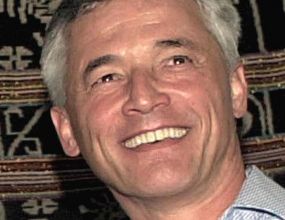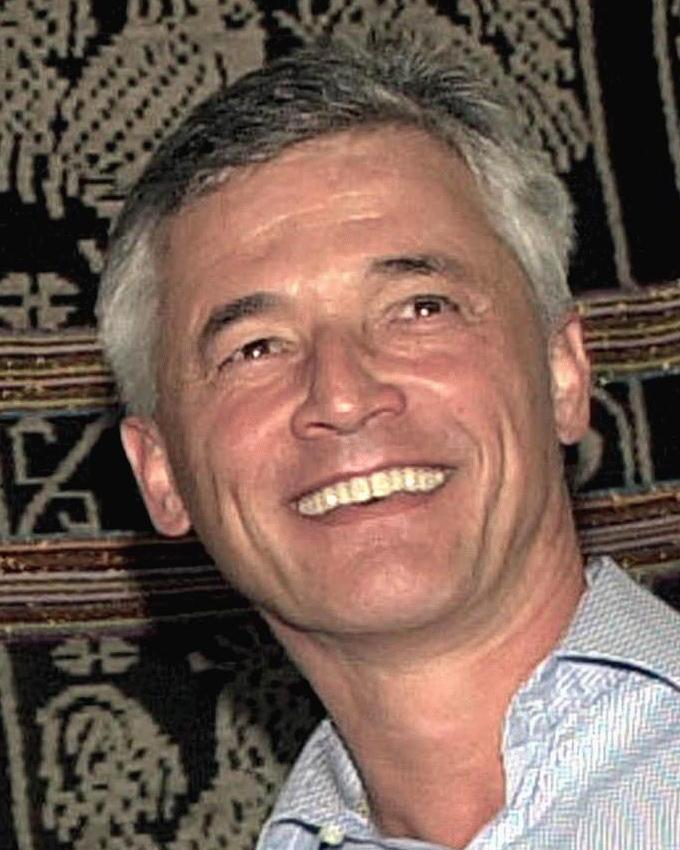 Photo #1 by Agência Brasil, a public Brazilian news agency; Photo #2 by National Archives at College Park - Still Pictures
Photo #1 by Agência Brasil, a public Brazilian news agency; Photo #2 by National Archives at College Park - Still Pictures U sve neprijateljskim uvjetima, humanitarno osoblje nastoji pružiti podršku ugroženim skupinama. Iako su njihove aktivnosti pune zasluga, možemo priznati da njihov rad također otkriva sustavni neuspjeh vlada u rješavanju problema siromaštva, isključenosti i nejednakosti. Svjetski dan humanitaraca slavi doprinos koji su humanitarni djelatnici dali našem svijetu.
Prijevod: Melike Sariguel
Humanitarnost je često postala posljednja crta borbe protiv potpunog urušavanja zajednica na mnogim mjestima. Istodobno, brojni glasovi upozoravaju nas na goruća pitanja u humanitarnom radu, u rasponu od korupcije do bijelog ‘saviorizma', što može ozbiljno ograničiti njezin pozitivan utjecaj. Ponovno promišljanje o ulozi humanitarne pomoći danas moglo bi nam pomoći u prijelazu na održivije modele društva u kojima nitko ne zaostaje.
U bombaškom napadu na hotel u Bagdadu, 19. kolovoza 2003. godine, poginula su 22 humanitarna radnika, uključujući Sergia Vieiru de Mella, u to vrijeme visokog povjerenika UN -a za ljudska prava i posebnog predstavnika UN -a za Irak. Prije je bio šef političkog odjela UNPROFORa, mirovnih snaga UN -a tokom ratova u bivšoj Jugoslaviji. Kako bi se prisjetili ovog tragičnog događaja i obilježili rad humanitarnog osoblja diljem svijeta, Ujedinjeni narodi su 2009. godine 19. kolovoza proglasili Svjetskim danom humanitaraca.

Za obilježavanje svake godine razmatra se posebna tema. Prošle godine fokus je stavljen na otpornost ljudi i odlučnost da nastave s humanitarnim radom unatoč (i kao odgovor na) pandemiju COVID -19. UN je označio pandemiju "najvećim izazovom humanitarnim operacijama diljem svijeta", cijeneći predanost humanitarnog osoblja da pomogne u pogoršanim uvjetima i ograničenoj mobilnosti koju je donio virus.
Ove godine glavna tema Dana humanitaraca bit će klimatska izvanredna situacija, s ciljem da '' istakne neposrednu ljudsku cijenu klimatske krize pritiskom na svjetske lidere da poduzmu značajne klimatske mjere za najugroženije ljude na svijetu '' (UN , 2021.). Ideja je podcrtati hitnost rješavanja klimatskih pitanja, kao primjer patnje skupina u borbi i bespomoćnost humanitarnih radnika pred klimatskom katastrofom.
Odabrana tema vrlo je relevantna za romske zajednice, ali i za humanitarno osoblje koje radi i komunicira s tim zajednicama. Romi su često izloženiji degradaciji okoliša više od bilo koje druge skupine i rijetko uživaju u blagodatima poboljšanja okoliša koje donosi društvo. Sustavni okolišni rasizam implicira da Romi više pate zbog klimatske krize, boreći se za život u odgovarajućim okruženjima bez zagađenja i otpada. Taj je kontekst prepreka za pristojan život, razvoj i integraciju Roma, što također doprinosi sve nesigurnijim uvjetima za humanitarno osoblje koje radi s romskim zajednicama.
Stoga je ova godina dobra prilika za prepoznavanje i vrednovanje rada humanitarnih radnika koji ulažu velike napore kako bi pomogli drugima u nevolji. No, čini se i da je dobar trenutak za priznanje da bez radikalnih promjena u našim gospodarstvima, političke volje za rješavanjem korijena nejednakosti, ozbiljne predanosti ublažavanju klimatske krize i puno većeg rada u obrazovanju i prevenciji, ostaje da se i ugrožene zajednice i humanitarni radnici koji im pomažu nastave boriti na tom putu.

Under increasingly hostile conditions, humanitarian personnel strives to provide support to vulnerable groups. While their activities are full of merit, we can recognize that their work also reveals the systematic failure of governments in addressing poverty, exclusion, and inequality. World Humanitarian Day celebrates the contribution made by humanitarian workers to our world.
Humanitarianism has often become the last contention dike against the total disruption of communities in many places. At the same time, a number of voices alert us of pressing issues within humanitarian work, ranging from corruption to white saviorism, which can seriously limit its positive impact. Re-thinking the role of humanitarian aid today might help us in our transition to more sustainable models of society where no one is left behind.
On the 19th of August 2003, a bomb attack in the Hotel Canal of Baghdad killed 22 humanitarian workers, including Sergio Vieira de Mello, at the time UN High Commissioner for Human Rights and UN Special Representative for Iraq. He had previously been Political Director to the UN Protection Force (UNPROFOR), the peacekeeping force during the wars in former Yugoslavia. To remember this tragic event and commemorate the work of humanitarian personnel worldwide, in 2009 the United Nations designated the 19th of August as World Humanitarian Day.
A specific theme is considered for each year's celebration. Last year, the focus was placed on people's resiliency and determination to continue doing humanitarian work despite (and in response to) the Covid 19 pandemic. The UN considered the pandemic ''the biggest challenge to humanitarian operations around the world'', valuing the commitment of humanitarian personnel to help in worsened conditions and limited mobility brought about by the virus.
This year, the main theme of the day will be the climate emergency, with the goal to ''highlight the immediate human cost of the climate crisis by pressuring world leaders to take meaningful climate action for the world’s most vulnerable people.'' (UN, 2021). The idea is to underline the urgency of addressing climate issues, exemplified by the suffering of struggling groups and the helplessness of humanitarian workers in the face of climate catastrophe.
The chosen topic is a highly relevant one for Roma communities, and also for humanitarian personnel working and interacting with these communities. Roma is often exposed to environmental degradation more than any other group, and rarely enjoys the benefits of environmental improvements brought about by society. Systematic environmental racism implies that Roma suffers more as a result of the climate crisis, struggling to live in suitable settings free from pollution and waste. This context is a barrier to decent life, development, and integration of Roma, which also translates into increasingly precarious conditions for humanitarian staff working with Roma communities.
Therefore, this year is a good opportunity to recognize and value the work done by humanitarian workers who go to great lengths to help out others in need. But it also seems a good time to acknowledge that without radical transformations in our economies, political willingness to address the roots of inequality, a serious commitment to mitigate the climate crisis, and much greater work in education and prevention, it is likely that both vulnerable communities and the humanitarian workers who assist them will continue to struggle along the way.